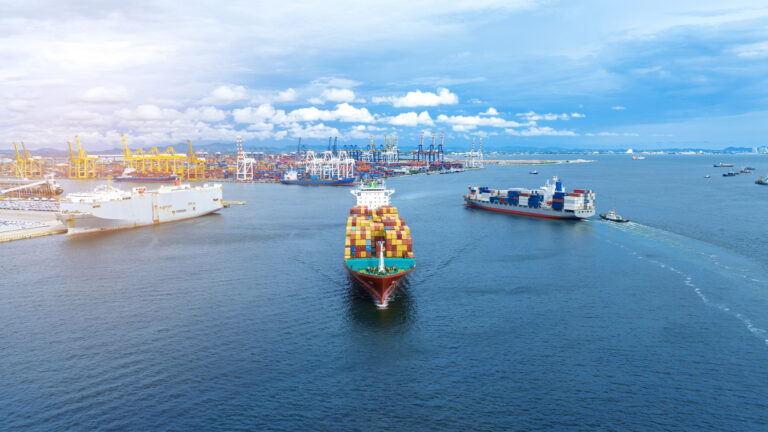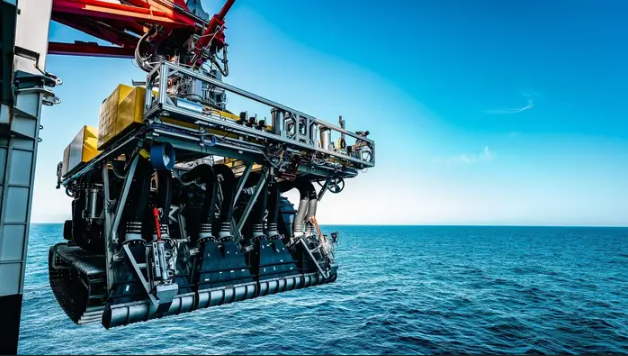Around 90% of the world’s goods – raw materials, food, manufactured goods and energy products – are transported by ships, underscoring the vital role of the shipping industry in today’s highly interconnected global economy. . How did we get here ? Two answers: The introduction of standardized shipping containers and assets that have become larger, much, much larger. Ships, ports, equipment and even the Panama Canal are bigger than ever. However, “bigger” does not necessarily mean “better”. The growth of the shipping ecosystem has been accompanied by increased environmental risks and impacts, posing significant challenges to all levels of the shipping sector and to society as a whole. In this context, I highlight three of the most important challenges in the sector, the first relating to shippers, the second to marine insurers and the third to ship operators. Shipping Delays: Increasingly Frequent and Costly Containerization has enabled many companies to adopt just-in-time manufacturing and inventory management practices, which has helped reduce operating costs. However, shipping delays can compromise companies’ carefully orchestrated operational plans and result in considerable financial losses.
The COVID-19 pandemic has highlighted this situation. When national lockdowns stopped or slowed the flow of goods, the shipping sector suddenly faced numerous challenges and many supply chains were severely disrupted. These episodes have highlighted the fact that value creation today strongly depends on the arrival of shipments within very short deadlines. Or, conversely, how value can be destroyed when goods and materials do not arrive on time While shipments can be delayed for many reasons, one of them has to do with how the he maritime ecosystem has struggled to adapt to the enormous ships entering service. Gaps include bridges with insufficient clearance heights, port wharves and turning basins that are not deep or wide enough, and cranes that are not suitable for efficient loading and unloading of larger cargoes . Although many ports are working to accommodate larger ships by expanding their facilities and improving their operations, the “margins” associated with these mega-ships continue to shrink. thus increasing the risk of a value-destroying delay. The Ever Given stuck in the Suez Canal for six days or, more recently, the Baltimore bridge which collapsed after being hit by a container ship are still in everyone’s memory.
Unfortunately, because standard insurance policies for ocean freight and contingent business interruption require physical loss or damage to trigger coverage, harm caused by shipping delays is generally not insurable. The only exception to this rule is for machinery/equipment included in « delay to start » or « anticipated loss of profits » policies, which compensate customers for additional expenses, penalties or lost profits they incur if a project ends late, for example if essential components do not arrive on time. These increasingly frequent shipping delays are prompting some companies to review the way they organize and manage their supplier networks. The two responses we are seeing are: – Reconfigure supply chains. In particular, prioritize suppliers located nearby rather than those on the other side of the world. – Rethink stocks. A key principle that underlies many operating models is that inventory is expensive. However, for some materials/components, the additional expense of holding slightly larger inventories could offset the direct and indirect costs of delayed shipping.
The Poseidon Principles for Marine Insurance The Poseidon Principles for Marine Insurance (PPMI) are an innovative framework for integrating climate considerations into the marine insurance sector. The initiative was launched in December 2021 in response to the growing need for environmental responsibility in the shipping industry, a sector that is responsible for approximately 2-3% of global greenhouse gas emissions. It is also part of a wider initiative supported by the World Maritime Forum, alongside similar frameworks for financial institutions and cargo chartering. PPMIs are the result of a collaboration between the main international maritime insurers, including AXA XL, and the main maritime transport companies. The World Maritime Forum and UMAS, an independent business consultancy that supports decarbonization initiatives across several industry sectors, are providing expert support. (Sundeep Khera, Global CUO Marine Hull of AXA XL and Head of Marine, UK & Lloyd’s, is vice-chair of the signatories’ steering committee).
The primary objective of the PPMI is to establish a standard for quantifying and reporting the carbon intensity of marine insurance underwriting portfolios. By aligning with the objectives of the International Maritime Organization (IMO), these principles aim to ensure that the global shipping sector can achieve its goal of reducing greenhouse gas emissions by at least 50%. by 2050 compared to 2008 levels and achieve net zero emissions as soon as possible this century. The principles are designed to be reviewed and updated based on the latest scientific data and international climate goals, so that the marine insurance industry remains at the forefront of sustainability efforts.
Since their inception, PPMIs have made significant progress in promoting transparency and accountability in the marine insurance sector. Annual information reports published under these principles provide insight into the degree to which their marine insurance portfolios are aligned with the required decarbonization trajectories. These reports highlight achievements and areas for improvement, guiding the sector towards more sustainable practices. The principles have also helped promote a shift towards more environmentally friendly underwriting practices. They encourage participating companies to consider the environmental impact of their portfolios and make informed decisions that contribute to global decarbonization efforts. Decarbonization is a shared responsibility. As a leading marine insurer, we look forward to working with our clients and other members of the Poseidon Principles for Marine Insurance to leverage existing industry initiatives, encourage action and have a positive impact. Deploy more environmentally friendly fleets.
Most of the approximately 60,000 merchant ships sailing today consume enormous quantities of heavy diesel and generate large quantities of carbon dioxide, sulfur dioxide, nitrous oxide, soot and fine dust. In addition to generating 2-3% of global CO2 emissions, these ships are responsible for approximately 15% of nitrous oxide and 13% of sulfur dioxide in the AV atmosphere. However, the industry recognizes the need to reduce its ecological footprint and a myriad of efforts are underway to deploy more environmentally sustainable fleets. This involves, for example, using alternative fuels such as liquefied natural gas (LNG). Other innovations include advanced hull design, improved propeller configurations and air lubrication technology, which reduces friction between the ship’s hull and the water. All of these help reduce fuel consumption and emissions. At the same time, shipowners in many parts of the world are beginning to design and deploy ships equipped with lithium-ion batteries or sails. Innovations launched by the automotive and consumer electronics industries have significantly reduced the cost of lithium-ion batteries while improving their performance. Therefore, applications involving lithium-ion batteries have become increasingly attractive and accessible to other industries.
In recent years, more and more ships have started using lithium-ion batteries in fully electric or hybrid systems. For example, three all-electric passenger ferries launched last year in Singapore to transport employees, entrepreneurs and visitors from the mainland to a small island 5.5 km offshore that is home to one of the largest oil refineries in the region. These ferries travel at a speed of 21 knots, or almost 40 km per hour, and their battery capacity is twice that of most electric ferries of this size; they therefore emit much less carbon dioxide and no nitrogen and sulfur oxides. Likewise, Norway’s extensive passenger ferry network now includes several fully electric ferries, with more in development. In other cases, some new cruise ships and large container ships have been equipped with hybrid systems combining diesel engines and lithium-ion batteries. This configuration allows them to use battery power to operate onboard electrical systems and for propulsion in ports and coastal areas, thereby reducing harmful emissions in. densely populated areas. Finally, there is the original and always free source of energy: the wind. However. Modern sail technologies built into commercial vessels to supplement engine power are unlike the fabric sails of yesteryear. These include rigid sails and kite sails which harness the force of the wind to propel ships.
Kite sails are essentially giant kites that fly in front of the ship to propel it forward using the force of the wind. These systems can be used on virtually all large vessels and provide significant fuel savings when wind conditions are suitable. The shipping industry understands and respects the critical role it plays in global trade and is committed to adopting more sustainable vessels and operating practices. AXA XL fully supports these efforts and looks forward to working closely with its customers and industry partners to enable this transformation of the global maritime sector.




